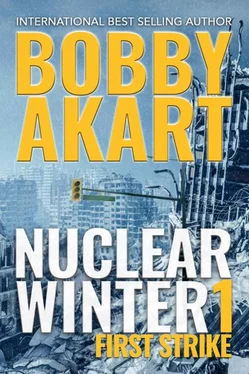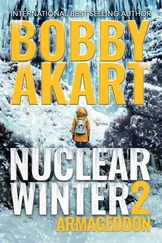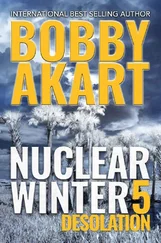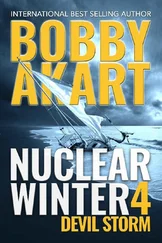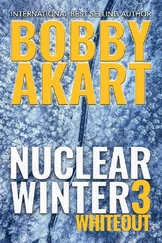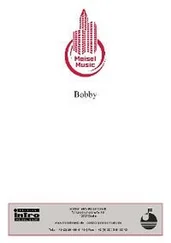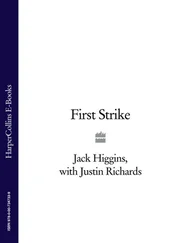The three of them sat quietly for a moment. Mike hoisted himself out of his beach chair to toss a couple more logs on the fire. He spoke to Hank as he returned to his chair.
“So, I was talking to Phoebe while we ate in the kitchen. She tells me that you’ve met a lady friend.”
Hank pulled the bill of his Tommy Bahama Relax hat down over his eyes as he shook his head from side to side. The formerly white hat was stained by years of wear and multiple washings in the salty sea.
“Geez, you people are relentless!” exclaimed Hank. “I didn’t meet a lady friend. She’s a guest of the hotel.”
“A special guest is what Phoebe told us,” added Jessica.
“Phoebe talks too much.”
“Tell us about her,” said Jessica.
“What’s to tell?” Hank asked rhetorically. “She’s here with her three sisters for an annual beach vacation. They stay at different places each year, and this year they chose the inn.”
“She’s a Washington big shot is what Sonny said,” interjected Mike.
“Damn. Sonny talks too much as well.”
“C’mon, Hank, she is a big deal, right?” asked Mike.
“Nah. Well, yeah. She’s secretary of agriculture.”
“Come on, Hank,” said Jessica. “She’s in the president’s cabinet. That’s pretty damn cool. So you two have hit it off?”
“Yeah, I suppose you could say that. I mean, we’re friendly, and she’s easy to talk to. Nothing like the politicians and government officials Peter tells us about.”
“How is my nephew?” asked Mike. “I got a text saying he wasn’t blown up in Abu Dhabi. Odd but good news, I guess.”
“A little too close for comfort, Mike. He was more in the thick of it than what was relayed in the news. Peter was lucky, but he made his own luck by some quick thinking.”
Hank finished his mojito and glanced over at Jessica’s glass to see if she was ready for another one. She noticed his interest and finished off her drink, waving the glass with a smile as she swallowed.
Hank rose and took her glass. “Michael? Ready?”
“Yeah, I’ll walk with ya.” Hank reached out with his free hand and clasped his brother’s to help hoist him off the beach chair. As he did, he heard shouting coming from the main house.
“Mr. Hank! Mr. Hank! Come quick. It’s Peter on the phone!”
The calm of the evening had just been shattered.
Saturday, October 19
Tehran, Iran
In those first few moments, they were dumbstruck. A million pairs of eyes fixed in a thousand-yard stare—nerve endings unfeeling, insensitive to what had happened.
Most just stood there. Mouth agape. Barely able to breathe as they comprehended what was happening. Others released a primal, spine-chilling scream before running in all directions in search of safety.
To observe their bodies, arms outstretched, flying away from where they once stood, would make you think your mind was playing tricks on you. Their fingers would begin to melt like a wax figurine in a much too hot enclosed room.
Then the rest of their body seemingly disappeared, evaporated into a cloud of dust, leaving no trace as it mixed with the sands of Persia.
The screaming would continue. Shrieking. Moaning. Agony expressed in any manner of ways.
Hundreds of thousands of victims at once. Maybe millions. Their fragile corpses, what was left of them anyway, strewn about amid a sea of shattered concrete and glass. A wasteland dotted with the shells of buildings, orphaned walls, and stairways leading to nowhere.
And then as a punctuation mark—a great, big exclamation point—a massive fireball would rise high into the stratosphere, carrying with it the bowels and guts of the once proud city and its inhabitants. A massive act of cremation of the dead corpses and the homes where they lived.
This was Tehran after the Israeli nuclear counterstrike. The Supreme Leader of Iran, the highest political and religious authority of the Islamic Republic, together with his Ayatollah advisers, was ready to administer justice. He needed to punish the Jews. Once that succeeded, he would turn his ire on the Americans. Death to Israel! Death to America! A mantra that was repeated a million times a day in Tehran.
Except he miscalculated.
He chose to believe the words of the scientists who’d recently been killed at Isfahan when they said their first-strike capability against Israel would be successful. He chose to believe his admired generals within the Iranian Revolutionary Guard, who assured him they had the capability to defend Iran from Israel’s counterattack. He chose to trust Allah, who told him those who might perish would rise to face the great resurrection followed by guaranteed admittance into Heaven.
He was wrong.
Iran pulled their nuclear trigger. In the first wave of their attack on Israel, they fired four fifty-kiloton warheads via Shabab 3 missiles upon Tel Aviv and two more upon Haifa up the coast. Tel Aviv was located on a flat, open plain with a high population density, making it the Iranians’ most likely target. Haifa, because of its population, was the next likely target. Jerusalem, because of its thirty-five percent Muslim population, was spared.
The superior Israeli anti-missile and anti-aircraft defenses performed admirably against the surprise attack but not perfectly. Both Tel Aviv and Haifa were struck with a nuclear warhead. The cities were devastated, but not destroyed. The aftermath would be another issue.
In Iran, its cities were particularly vulnerable to nuclear attack due to geography, building construction, and population densities. Israel was merciless in their counterattack, sending several one-megaton warheads at Tehran just seconds behind a cluster of Jericho 1 and 2 missiles to draw Iranian defenses. While the Russian-made S-300 missile defense system knocked down most of the Jericho missiles, they were preoccupied when the nuclear-armed cruise missiles arrived.
Tehran, with its thirteen million inhabitants and fifty percent of the republic’s manufacturing and education facilities, never stood a chance. The simultaneous detonations obliterated the city.
The limited nuclear war, which was over in hours, had long-lasting effects on the planet, especially in Tehran. The topography, specifically the mountains around Tehran, obstructed the distribution of the blast caused by the nuclear explosion, forcing the debris upward. This, coupled with climatic conditions that included high concentrations of airborne dust, exacerbated the size of the mushroom cloud.
The massive hot bubble of gas rose in the form of a fireball, carrying with it debris and radioactive material. Within days, it would have circumnavigated the planet.
PART III
ONE WEEK IN OCTOBER
Day three, Sunday, October 20
Sunday, October 20
White House
Washington was in a frenzy. Staffers working at the White House, the State Department, the DOD, and Homeland Security were all called in on a Sunday as the world reeled from the nuclear war that had broken out between Israel and Iran. Years later, it would be known as the Six-Day War although for all intents and purposes, it was over in six hours.
The delusional Iranians still had a lot of fight in them. Despite Tehran being leveled from the twin nuclear detonations delivered by Israel, the Iranians had planned a ground attack coupled with naval activity in the Persian Gulf. They were seemingly prepared to do battle in the region regardless of the consequences for the Iranian people, who never had a chance.
The Iran Navy, led by Commodore Hossein Mohammed, was a small but formidable force. They’d war-gamed a blockade of the Strait of Hormuz as the cruise missiles began to fly. This action was consistent with their prior threats of stopping the flow of oil out of the Middle East and permanently forcing the U.S. out of the region.
Читать дальше
